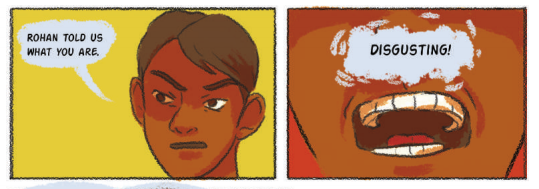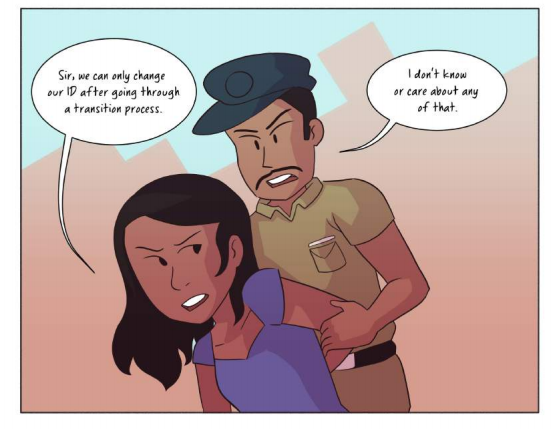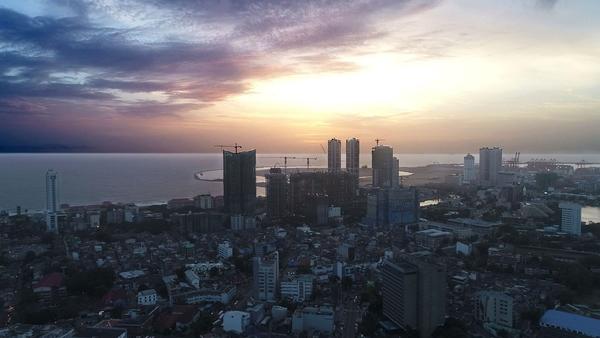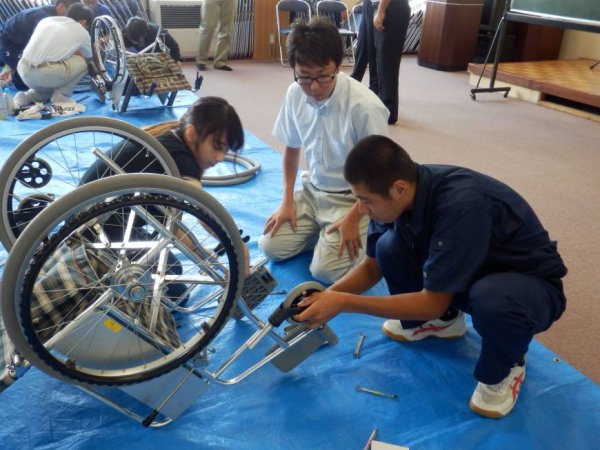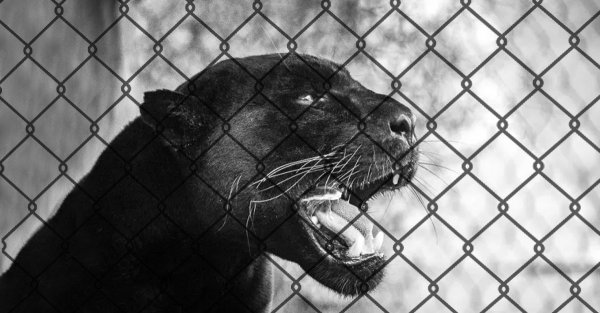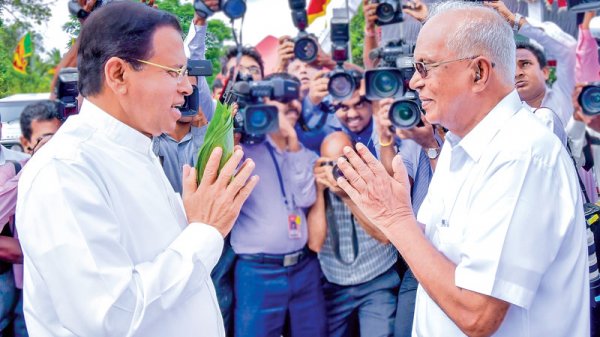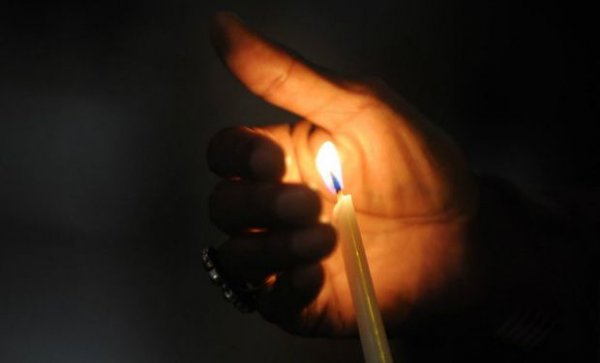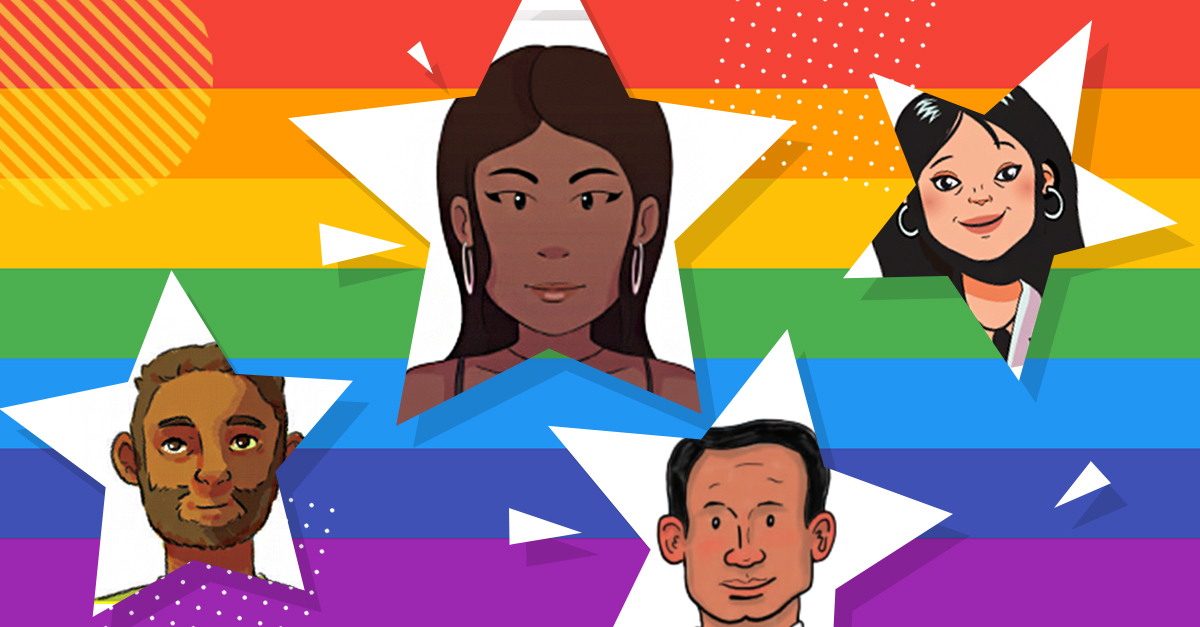
Yech. Not the kind of response any of us would like to have. But the kind of response many who identify as LGBTI face. And it is exactly these kinds of attitudes that ‘Spectrum’ —a comic book produced by Amnesty International South Asia, is trying to change.
Through stories centred on four characters—Manju, Kiruthika, Thenu and Samanali, Spectrum attempts to highlight some of the issues faced by the LGBTI community in Sri Lanka.
Each character is brought to life by a different artist, who in turn lends unique style to the story — this is apparent in Gimhani Galagedera’s use of shaky panels to establish the difference between the dream-like quality of stories her character Manju teaches to his classroom from the straight, rigid boxes that frame his reality, or Madhri Samaranayake’s use of cold blues and purples to capture the constant state of fear and isolation felt by Kirithika, a young lesbian woman hiding her relationship from her girlfriend’s family.
The story of Thenu, a transgender man who faces routine harassment at work was illustrated by Shenuka Corea, while the story of Samanali, a transgender woman, was illustrated by Akiel Surajdeen.
The four artists were commissioned by Amnesty International South Asia and picked specifically for their distinctive art styles and willingness to take on politically charged material.
“The comic book medium allows the stories to feel more personal and real than if it were just told in writing,” Rehab Mahamoor, a research assistant for Amnesty International South Asia, who drafted the initial versions of the story said. “Which is why we wanted it to be a comic from the start, because we wanted people to read it.”
Spectrum debuted in Sinhala, Tamil and English at the Lanka Comic-Con a few weeks ago, where it was distributed for free to anyone that wanted it. There is also a free version available online.
“From the inception, we knew that Comic-Con was going to be our launch date, because it attracts thousands of young people, which is the exact demographic we want to target,” said Mahamoor.
Indecency, Impersonation, And An Unjust Penal Code
While the comic book made the featured stories appealing to read, it was meant to shed light on legal issues faced by the LGBTI community in Sri Lanka, particularly with regard to the provisions of the Penal Code that specifically target LGBTI people.
Article 365 and 365A on the Penal Code enacted by the British 1883 describes ‘carnal intercourse against the order of nature’ and ‘gross indecency’ as strictly prohibited acts. Although there is no exact definition to these terms, the laws have been used to specifically target the LGBTI community in Sri Lanka.
In addition to this, Section 399 of the Penal Code criminalises ‘cheating by impersonation’ — a law that has been used to target trans-people specifically, on the allegation that they are ‘pretending’ to be of a different gender.
One of the first stories in the comic portrays this being played out, when Samanali, a transgender woman is stopped by the police and taken into custody. Although Samanali has not committed any crime, the fact that the gender on her identity card indicated that she was male, was enough for her to be questioned, harassed and taken to jail.
But Mahmoor counters the laws should not be used to target the LGBTI community. “Although these laws in the Penal Code exist, Article 12 of the Constitution clearly states that no one should be discriminated against,” she said. “There have been a number of commitments made by the UN arguing that Article 12 should explicitly include non- discrimination [on the basis of] sexual orientation and gender identity.”
Sri Lanka is a party to many of the treaties that were created with the specific aim of ensuring that the civil, political, economic and social rights of all people is upheld. Amnesty International South Asia believes that this should hold the government accountable, ensuring that LGBTI people are not discriminated against.
Only The Beginning
Though the comic debuted only last month, the response has been extremely positive. Mahmoor recalled that even at the Lanka Comic-Con, many had expressed their appreciation that a topic like this was tackled so well in an accessible manner.
“People have also reached out for extra hard copies to put in common places,” Mahmoor said. “We distributed them to companies and organizations, and other activists, and institutions have reached out asking us to promote this in their organisations and with their employees.”
But while the positive response is definitely something to celebrate, Mahmoor believes this campaign is only the beginning.
“It is important to create awareness, but it’s not enough,” she said. “We hope that one day, our efforts at educating people and creating awareness will lead to these policies actually being changed.”

